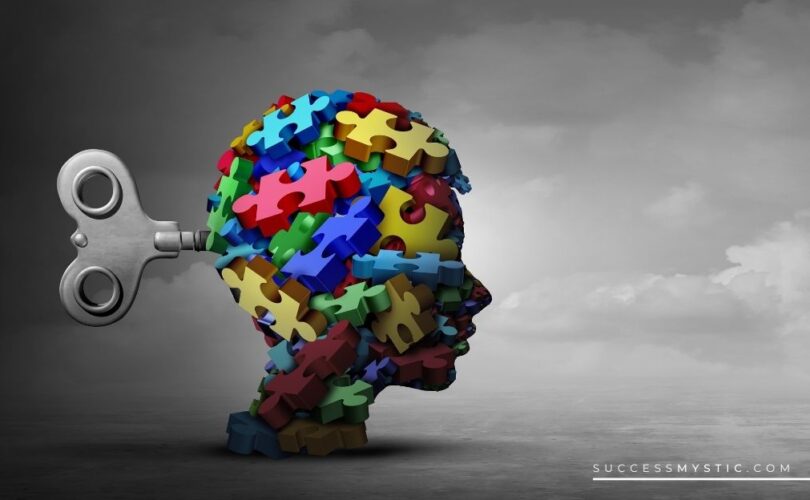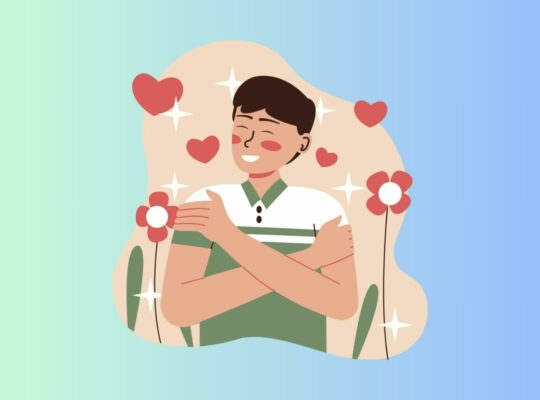Mental health can be defined as emotional, psychological, and social well-being. Our mental health impacts the way we think, feel, and act, and shapes the way we perceive the world around us, manage stress, and make decisions.
There are numerous elements that can impact our mental health including social relationships, biological factors, access to basic necessities, physical health, genetics, life experiences, and demographic factors among others (Lanese, 2019).
Mental health is important for a variety of reasons, the first being the impact mental health has on physical health. Studies show that a decline in mental health can lead to deterioration in physical health. This can be seen in instances of individuals with chronic anxiety and depression who often have increased instances of high blood pressure, cardiac disease, and decreased immunity which makes the body more susceptible to illness (Lim, 2019).
WebMD outlines that prolonged stress and anxiety causes the body to release stress hormones that speed up your heart rate and breathing, raise your blood sugar, and send more blood to your arms and legs. Over time, this can affect your heart, blood vessels, muscles, and other systems (Browne, 2020).
Mental health also has the ability to impact our behaviors, and when our mental health is poor, we can make poor choices that can lead to negative consequences.
- There has been some exploration in the research on the link between poor mental health and participation or engagement in high-risk behaviors such as the use of drugs or alcohol, or participation or involvement in criminal activity.
- Research by Psychiatric Services in North Carolina found that people with severe mental health issues who were not taking medication were 2.7 times more likely to be involved in violent crime (Browne, 2020).
- Our everyday lifestyle choices can also be negatively impacted by poor mental health. Our eating habits can change causing us to under eat or overeat thereby negatively affecting our health.
- Our ability to manage time, concentrate, stay on top of tasks, or engage in relationships can also be negatively affected. On a more serious scale, intentionally destructive behavior like self-harm can occur if mental health severely deteriorates (Browne, 2020).
The Pandemic and Mental Health
This global pandemic is unlike anything we have ever experienced before. These times are truly unprecedented and filled with tons of uncertainty and chaos. On a monthly, weekly, and even daily basis we experience shifts and changes that impact health outcomes, economic outcomes, societal outcomes, and our daily lives in such major ways.
As a result, stress, fear, and uncertainty are at an all-time high, all of which are impacting our mental health in serious ways. Data seems to show that mental health is at an all-time low and that Americans are reporting high levels of emotional distress as a result of the pandemic.
- A Kaiser Family Foundation poll found that more than half (roughly 56%) of Americans surveyed reported that worry or stress related to the outbreak has led to at least one negative mental health effect.
- A recent poll of more than 3,100 WebMD readers found that 26% said they felt a sense of trauma from COVID-19 (Kam, 2020). While Talkspace, an online therapy company, reported a 65% spike in clientele since mid-February when the health crisis began to peak. While a federal emergency hotline for people in emotional distress registered a more than 1,000% increase in April as compared to the same time last year (Wan, 2020).
- Licensed clinical psychologist Jonathan Porteus, PhD states “Our society is definitely in a collective state of trauma. Unlike post-traumatic stress disorder, which surfaces after a trauma has ended, the country is only starting to grapple with the pandemic’s psychological fallout.”
- A report from the Well BeingTrust found that the pandemic could lead to 75,000 additional “deaths of despair” as a result of drug and alcohol misuse and suicide due to unemployment, social isolation, and fears, stress, and anxiety related to the virus (Kam, 2020).
Additional negative mental health effects being linked to the pandemic include trouble with eating or sleeping, drinking alcohol more, frequent headaches or stomach aches, shorter tempers, and other health problems. All of which seem to be trending to what some warn could be a national mental health crisis depending on how long the pandemic continues, which no one has real answers about as that is one of the many unknowns of this season.
There is research to show how our mental health can be impacted by states of chaos, uncertainty, fear, and stress. Research shows that there is in fact a correlation between the intolerance of uncertainty and anxiety, worry, and stress. Evidence suggests that the less comfortable a person is with not knowing what to expect in a particular situation, the higher the likelihood of anxiety. As a result of the increased anxiety, there is then increased worry and ultimately increased stress (Peterson, 2017).
As we feel feelings of anxiety, worry, and stress, our thoughts become consumed with worst-case scenarios and potential negative outcomes. Since negativity feeds on itself, as we dwell on the negative, we think more about the negative until it seems to take over our thoughts completely. As our thoughts become consumed by negativity our emotions are unavoidably impacted also. We can experience anhedonia, a component of depression where there is a reduction in pleasure and positivity. We actually become less capable of experiencing positive emotions and pleasurable experiences as a result of the effect our negative feelings have on our thoughts.
This can cause us to make negative behavior choices such as disengaging from relationships, refraining from eating, partaking in substance abuse, or lashing out at others (among other things). We can even become paralyzed by anxiety, worry, and stress and become dormant or “stuck,” effectively not moving forward in our lives because we don’t know what might happen (Peterson, 2017).
A cross-sectional multistage study published in March 2020 looked at 11, 954 students recruited from 50 Chinese universities amongst various cities, provinces, regions, and municipalities in China. The study aimed to look at the relationships between the types of stress students’ experienced and students’ mental health, to distinguish the effects of stressors on mental health problems, and to explore the important role of uncertainty stress on the development of mental disorders.
The Student Daily Stress Questionnaire (SDSQ) was applied to measure the different types of stress, and mental health status was measured using the 12-item Chinese Health Questionnaire (CHQ). Both unadjusted and adjusted logistic regression models were utilized in the statistical analyses. Multilevel analyses were performed to examine the variation of mental disorder at both the individual and university levels (Wu et. al., 2020).
The results of the study revealed that the prevalence of mental disorders was 22.8%. The unadjusted models showed that age, gender, grade, major, and university location and type were the correlates of mental disorders among students.
Researchers were able to conclude that study stress, life stress, and uncertainty stress were positively associated with mental disorders. The multilevel logistic regression models showed that uncertainty stress was far more likely to result in students’ mental disorders than study or life stress after controlling for the university level.
It was noted that the greater the perceived uncertainty stress, the higher the prevalence of mental disorders (Wu et. al., 2020). Thus, demonstrating how times of fear, uncertainty, and chaos can in fact lead to negative mental health impacts.
The trauma of the pandemic can also create long-term issues and have lasting impacts on our lives.
Trauma puts our minds and bodies in a heightened state (fight or flight response). The stress hormone cortisol is released and this can be problematic for the body, leading to issues such as inflammation, migraines, and chronic pain conditions. Not only that, but there are heightened levels of anxiety, greater rates of depression, greater sensitivity to stress (Cleveland, 2020).
Research has shown that individuals who have experienced trauma or significant stress often go on to have mental health disorders such as chronic anxiety, depression, or post-traumatic stress disorder. In the grand scheme of things, these issues can go on to impact our lives in major ways.
We can find ourselves more susceptible to a mental breakdown, more vulnerable to substance abuse and risky behaviors, and less likely to cope with future stresses. Studies have shown that most people who seek inpatient treatment for personality disorders, substance abuse, eating disorders, anxiety disorders, or depression were exposed to some type of trauma (like physical, sexual, or emotional abuse) at some point in their life (Bhandari, 2018).
If we are not careful trauma can lead to lifelong issues that make it hard for us to engage with others or even just exist in everyday society. Anxiety can become crippling to the point where we cannot complete simple tasks without panic attacks.
Depression can become such that we are unable to leave our homes for form /maintain meaningful relationships. PTSD can mean that small stimuli trigger large, negative emotional, and mental reactions that again cause life to be a challenge. Thus, taking measures in the midst of a traumatic event to protect the health of the mind and body can go a long way for helping build resilience once the trauma has passed.
With all of those negative impacts, it is essential that mental health is cared for, otherwise one runs the risk of substantial decline.
Benefits Of Therapy For Mental Health
There are a variety of benefits that therapy can provide for mental health, which makes it a strong avenue to pursue to maintain and strengthen mental health. From a broad perspective, the benefits of therapy can include an increased sense of joy, reduced social isolation, improved daily functioning, improved relationships, increased quality of life, decreased use of mental health services, and reduced doctor’s visits for physical symptoms. However, there are more specific benefits therapy can offer for mental health which are outlined below.
Decreased Anxiety
Anxiety is an ongoing chronic condition that impacts virtually every area of the lives of those suffering from it. Those who have anxiety find themselves on edge, often expecting something bad to happen even when there is little to no evidence to support that.
This anxiety can lead those struggling with anxiety to feel overly self-conscious, become avoidant, or have trouble in social situations (Good Therapy, 2018). One way therapy improves anxiety is by serving as a safe space for people to admit the full extent of their anxiety.
Simply having the space to discuss the anxiety you feel can go a long way towards releasing it. Another way therapy can help with anxiety is by providing clarity as to the reasons behind the anxiety. Often, anxiety is not rational.
Therapy can debunk our anxiety by showing us the root cause of our anxiety and revealing to us how unreal our fear is, thereby helping us manage it. Therapy can also show us what triggers our anxiety and teach us healthy ways to manage it so that we can better handle anxiety-inducing situations and scenarios (Jacobson, 2019).
A 2018 study looked at the efficacy of therapy, specifically cognitive behavioral therapy for anxiety-related disorders. 41 studies randomly assigned patients with acute stress disorder, generalized anxiety disorder, panic disorder, posttraumatic stress disorder, social anxiety disorder, or a psychological or pill placebo condition. The findings of the study revealed that the therapy was moderately beneficial for anxiety disorders as compared to the placebo (Carpenter & Andrews, 2018).
Decreased Depression
Therapy can also help with the management of depression. Depression is a chronic condition that hinders a person’s quality of life and is characterized by persistently depressed mood or loss of interest in activities. It often interferes with someone’s social interactions, sleep patterns, eating habits, motivation, and focus among other things.
Therapy offers a benefit to those suffering from depression by helping them develop new patterns of thinking and reacting. Therapy can also offer medicinal options to help more severe cases of depression (Jacobson, 2019).
Studies have shown that therapies including cognitive therapy serve as an effective treatment for depression and are comparable in effectiveness to antidepressants. It has also proved beneficial in treating patients who have only a partial response to adequate antidepressant therapy.
Good evidence has shown that cognitive therapy reduces relapse rates in patients with depression, and some evidence has shown that cognitive therapy is effective for adolescents with depression also (Rupke, Blecke, & Renfrow, 2006).
Stress Management
Another benefit that therapy can offer is stress management. Therapists offer a variety of tools and techniques that help their clients learn how to manage stress and stressors in their daily lives.
First, therapists can help individuals unlock what triggers stress or serves as stressors, and then provide techniques and tools to help people learn to navigate when those triggers arise. Another way therapy works to reduce stress is by teaching people how to shift their perspectives or explanatory styles.
Explanatory styles are the way we explain the events in our lives. When an event occurs, our explanatory style is the way we process it, attach meaning to it, and assess it as either a challenge or a threat. Negative explanatory styles tend to create more stress in life and can make our stressors feel more threatening. Whereas positive explanatory styles cause us to see challenging experiences as less threatening and less stressful (Scott, 2020).
Therapists can teach their clients to adjust their explanatory style to a less pessimistic and more optimistic one that perceives challenges more positively, and thus responds to stressful situations more positively. Ultimately, this reduces overall stress and helps promote a more appropriate and positive stress response.
Emotional Support
Therapy can offer a safe space needed for emotional and mental release. For many people, this alone is a huge value. Oftentimes people have a history of pent up emotions and experiences that are weighing on them and impacting their thoughts, emotions, and behaviors.
Therapy provides a place for people to work through past experiences, triggers, thoughts, and behaviors without judgment or pressure. This can often be what is required to experience a necessary breakthrough in unhealthy thought and behavior patterns.
Improved Relationships
Therapy can help improve relationships as well. One way is by improving communication. By teaching people healthier ways to communicate with others, people are better able to engage with friends and family members in less destructive and combative ways. This opens lines of communication and allows conflict to be worked through in healthy ways.
Additionally, it can help people gain personal awareness about themselves that will help them to alter thoughts and behaviors that may be negatively impacting their relationships.
When people become aware of anxieties, behaviors, triggers, or other things that can be causing them to engage in unhealthy ways with others they can begin to take measures with the guidance of their therapist to change for the better (Cropper, 2015).
Management of Behaviors
Therapy can be very beneficial in terms of aiding in the management of negative or detrimental behaviors. Therapy can teach you how to cope with thoughts and emotions that might lead to negative ways of managing such as obsessions, compulsions, and even substance abuse. Therapy seeks to get to the root of the negative thought pattern and offer productive alternatives for dealing with emotions or triggers.
Rather than resorting to compulsive, obsessive, or dangerous behavior, people can be taught other ways such as relaxation techniques.
Research has shown that behavioral therapy and cognitive behavioral therapy, among others, have successfully been used to help patients manage ADHD, autism spectrum disorder, obsessive-compulsive disorder, anxiety disorders, and other behavioral issues (Good Therapy, 2018).
Hopefulness
One of the most overlooked but also one of the most beneficial aspects of therapy for mental health is that it offers hope. Often therapists, by validating patients’ experiences and emotions, and then by providing techniques and management tools, provide their clients with hope that their situation can get better.
People realize that they do not have to suffer from their condition alone. Rather, that there is help and hope for them, and that with time they can see improvements in their condition or situation. When people feel hopeful regarding their situation, they are more likely to be engaged in their treatment and actively participate in the process. They will take a more active role in their recovery and generally see quicker, more positive, and more long long-lasting results (Peterson, 2019).
Types Of Therapy
There is not a one size fits all approach when it comes to therapy. Broadly defined, therapy refers to a process of technique that improves or modifies someone’s thoughts, feelings, or behaviors.
It can include different types of counseling as well as mental health medication. Typically, mental health therapy includes several approaches that work together to improve the wellbeing and health of a person’s mind and emotions (Peterson, 2019).
Behavioral Therapy
Behavioral therapy is an approach designed to help you adjust your behavioral responses to certain stimuli. This focused, action-oriented approach to mental health treatment is centered on ways to change behavioral reactions and patterns that cause distress. Subtypes of behavioral therapy include systematic desensitization, aversion therapy, and flooding among numerous others.
Systematic desensitization involves a combination of relaxation exercises and gradual exposure to something you fear. This is designed to replace feelings of fear and anxiety with a relaxation response overtime. Aversion therapy teaches you to associate the behavior you want to change with something uncomfortable or unpleasant as a means of helping you to stop the behavior. Flooding involves directly confronting the fear from the start as opposed to gradually.
Any form of behavioral therapy can be used to cope with anxiety, phobias, substance abuse, obsessive-compulsive disorder, oppositional and defiant behaviors, and attention deficit hyperactivity disorder among others (Peterson, 2019).
Cognitive Behavioral Therapy
Cognitive-behavioral therapy is a short-term approach to mental health treatment that works to deal with harmful and unhelpful thought patterns or thoughts. Cognitive-behavioral therapists work to help patients identify negative thought patterns and behaviors and how those thought patterns and behaviors might be impacting them, and then replacing them with ones that are more helpful and accurate. Subtypes of cognitive-behavioral therapy can include dialectical behavioral therapy or rational-emotive therapy.
Dialectical behavioral therapy uses CBT skills while prioritizing acceptance and emotional regulation. Rational emotive therapy focuses on replacing irrational thoughts with rational ones that improve overall well-being. It teaches you to challenge irrational beliefs that contribute to emotional distress and other problems.
Cognitive-behavioral therapy can be used to deal with mood disorders, anxiety, and phobias, substance abuse disorders, eating disorders, OCD, and some symptoms of schizophrenia (Peterson, 2019).
Psychodynamic Therapy
Psychodynamic therapy is derived from psychoanalysis, which is a more long-term approach to mental health treatment. For many people, this process lasts years as opposed to months. In psychodynamic therapy, a person works with their therapist to explore the link between the unconscious mind and their actions.
This involves an examination of the emotions, relationships, and thought patterns. This approach often involves discussion of childhood and past events, discussion of recurring dreams or fantasies, and discussion of anything that will help uncover patterns in thoughts or behavior that may be contributing to distress.
Psychodynamic therapy can be used to treat depression, anxiety, somatic symptoms, eating disorders, and substance abuse among other problems (Raypoole, 2019).
Interpersonal Therapy
An interpersonal approach to therapy focuses on the behaviors and interactions a person has with the people in their lives (i.e. family & friends). The ultimate goal of interpersonal therapy is to improve communication between the individual and the people in their lives by increasing their self-esteem and teaching them to express emotions in healthy ways. Typically, this type of therapy lasts for a period of up to four months and works incredibly well for issues such as loss, role transitions, relationship conflicts, major life events, and social isolation (Raypole, 2019).
Research over the past 40 years has shown that interpersonal therapy is beneficial in treating mood disorders and psychiatric disorders. In a randomized 14-week trial comparing interpersonal therapy, prolonged exposure, and relaxation therapy as an active control psychotherapy for 110 unmedicated patients with chronic PTSD related to various traumas, evidence showed that all three treatments produced large improvement effect sizes on the Clinician- Administered PTSD Scale.
However, patients who received interpersonal therapy had higher response and lower attrition rates as compared to patients who received prolonged exposure therapy. Additionally, patients preferred interpersonal therapy over the alternative treatment options. The interpersonal therapy also had a lower dropout rate for patients with comorbid major depression than both prolonged exposure and relaxation therapy.
Interpersonal therapy seemed to also have greater benefit for patients who presented with childhood and adult sexual trauma. Also, responders to the IPT generally maintained progress at a three-month follow-up without further treatment (Markowitz, et al., 2015).
Humanistic Therapy
Humanistic therapy is an approach that takes into consideration how our worldview impacts the choices we make, particularly with regards to choices that cause distress. This therapy is based on the idea that you are the person best equipped to understand your own needs and experiences.
The primary aim of this type of therapy is to help you understand what you are experiencing and guide you through the process of interpreting your feelings.
- This approach embraces self-acceptance and helps you work towards living a more fulfilled life by embracing your true self and having unconditional positive regard. Subsets of humanistic therapy can include existential therapy, person-centered therapy, and gestalt therapy. Existential therapy is a philosophical approach that allows you to consider concepts such as responsibility for your choices and your freedom to make choices as a means of finding greater meaning in life.
- Person-centered therapy is an approach that works from the belief that emotional distress can result when others criticize you or show disapproval for your choices or actions. This can make self-acceptance and growth difficult. Therapists from this approach offer acceptance, empathy, and guidance as you work on personal growth and positive change.
- Gestalt therapy is an approach that allows you to look at unresolved issues, considering how they affect your emotional well-being. Gestalt therapy focuses on the present moment and often involves role-playing or acting out scenarios with movement or visualization.
A humanistic therapy approach can be useful for addressing self-esteem issues, difficulty coping with chronic health effects of trauma, depression, relationship issues, and feelings of worthlessness or being lost in life, among several others (Raypole, 2019).
Final Thoughts
Overall, there is outlined evidence that therapy is beneficial for establishing and maintaining mental health, particularly during times of chaos such as these. When we are faced with a pandemic and the fear and uncertainty that often comes along with it, waiting until a problem arises is likely not the best strategy. Rather, regular maintenance is probably a better route to take in order to maintain good mental health. Therapy offers a healthy way to manage stress and anxiety, improve relationships, manage emotions and behaviors, reduce risk of depression and maintain hopefulness.
There are a variety of approaches that can be taken and therapy options should be adequately researched to find one that adequately meets your specific needs. By doing so you can deal with any current stress you may feel and help prevent a build-up of any emotions or anxiety you may feel in the future.
By learning the techniques and being provided the resources you need to navigate triggers and challenging times, you can overcome this season and still thrive in the midst of a pandemic.
References:
Bhandari. (2018). Anguish and mental health. WebMD.
Browne, S. (2020, May 13). 3 reasons why mental health is so important. Lifehack.
Cropper, J. (2015, May). How therapy can help in relationships. Welldoing.
Good Therapy. (2018, January 9). Benefits of psychotherapy. GoodTherapy – Find the Right Therapist.
Jacobson, S. (2019, October 11). How does therapy help anxiety? Harley Therapy™ Blog.
Kam, K. (2020, May 8). Mental health an emerging crisis of COVID pandemic. WebMD.
Lanese, N. (2019, October 10). What is mental health? livescience.com.
Raypole, C. (2019). Types of therapy: Different types of approaches and how they work. Healthline.
Scott, E. (2020). Explanatory styles and their role in stress. Verywell Mind.
Wan, W. (2020, May 4). The Washington Post.







